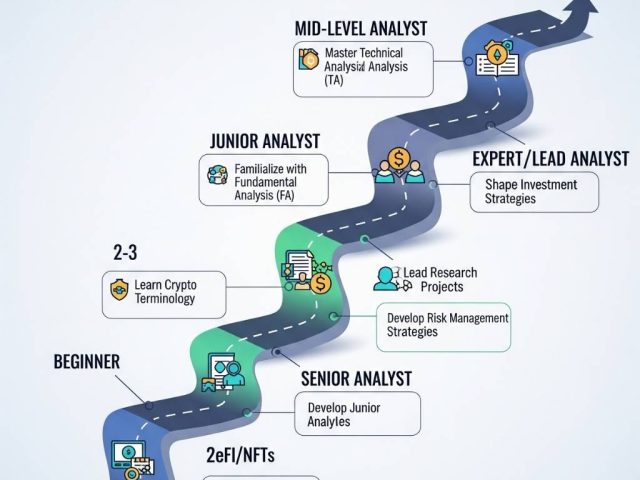The world of cryptocurrency continues to evolve, and so do the regulations surrounding it. Brazil, a country experiencing a surge in crypto adoption, is no exception. If you’re a Brazilian crypto investor or considering dipping your toes into the Brazilian market, understanding the tax implications is crucial for navigating your financial journey.
As pioneering economist Milton Friedman once said, “The ultimate result of shielding men from the effects of folly is to rob them of the liberty that enables them to learn from their errors.” In the realm of crypto investing, knowledge is power, especially when it comes to taxes. This guide will equip you with the essential information about crypto taxes in Brazil, from the current framework to upcoming changes and reporting requirements.
Understanding Crypto Taxes in Brazil
Current Tax Framework (as of July 12, 2024)
Brazil’s current tax treatment of cryptocurrency can be categorized into three main scenarios:
-
Capital Gains Tax on Crypto Sales: Just like selling stocks or property, selling cryptocurrency in Brazil incurs a capital gains tax. However, there’s a threshold to consider. If your total crypto disposals in a month exceed R$35,000 (approximately $6,875 USD), you’ll be subject to capital gains tax. The tax rate itself is progressive, ranging from 15% to 22.5% depending on your total capital gains across all assets (not just crypto) in that year.
-
Income Tax on Crypto Activities: Using cryptocurrency to generate income also triggers tax obligations. This applies to activities like mining crypto, receiving crypto for goods or services rendered, and even receiving crypto rewards from staking or lending platforms. Income derived from these activities is taxed according to regular income tax brackets in Brazil, ranging from 7.5% to 27.5%.
Important Note: Distinguishing between hobbyist crypto activities and business operations is crucial. Business activities typically face higher tax rates and more stringent reporting requirements.
- Tax-Free Crypto Transactions: There are a few crypto transactions that are exempt from taxation in Brazil. These include:
- Buying cryptocurrency with fiat currency (reais)
- Transferring cryptocurrency between wallets you own (This excludes sending crypto to exchanges or other third parties)
While these transactions are tax-free, it’s important to maintain records of all your crypto activity, even the tax-exempt ones. This will come in handy when calculating capital gains or income earned from future crypto sales or activities.
Proposed Changes to Crypto Taxation (as of July 12, 2024)
The Brazilian government is looking to streamline and potentially simplify crypto taxation. A bill proposing a flat 15% tax on all crypto earnings held on international exchanges is currently awaiting presidential approval. If passed, this could potentially impact foreign crypto investors in Brazil, especially those holding their assets on offshore exchanges.
Reporting Crypto Transactions for Brazilian Taxes
Importance of Record Keeping
Whether you’re a seasoned crypto investor or a curious newcomer, keeping meticulous records of your crypto activity is paramount in Brazil. Here’s why:
- Accurate Tax Filing: Come tax season, you’ll need to report your crypto transactions on your income tax return. Solid records ensure you report everything accurately, avoiding potential tax liabilities or penalties down the line.
- Calculating Capital Gains: Remember the capital gains tax threshold of R$35,000 per month? Without proper records, tracking your total monthly disposals and calculating any capital gains tax due becomes a nightmare.
- Demonstrating Income Source: If you generate income through crypto activities like mining or receiving crypto for services, you’ll need to prove your earnings to the tax authorities. Clear records are essential for supporting your income tax filing.
Think of your crypto transaction records as a financial GPS. They guide you through the tax landscape, ensuring you stay compliant and avoid unnecessary detours.
When and How to File Crypto Taxes
Tax filing deadlines in Brazil typically fall on the last working day of April each year. The specific forms you need to use depend on the type of crypto transactions you engaged in. Here’s a breakdown:
- Capital Gains Tax: For crypto sales exceeding the R$35,000 threshold, you’ll likely need to use the GDAM (Statement of Movement of Assets and Rights) form.
- Income Tax on Crypto Activities: Income earned through crypto mining, receiving crypto for services, etc., is reported on the regular income tax return forms.
Remember, these are just general guidelines. Consulting a tax professional familiar with crypto taxation in Brazil is highly recommended to ensure you’re using the correct forms and reporting everything accurately.
Considerations for Foreign Crypto Investors in Brazil
The Brazilian crypto landscape is welcoming to foreign investors, but residency status plays a crucial role in determining your tax obligations. Here’s what you need to consider:
-
Residency and Tax Implications: If you’re considered a resident of Brazil for tax purposes, you’ll be subject to Brazilian crypto tax regulations on all your worldwide crypto holdings. This applies regardless of where you store your crypto (domestic or foreign exchanges).
-
Non-Residents and Crypto Taxes: If you’re a non-resident with no permanent establishment in Brazil, you’ll only be taxed on crypto income sourced from Brazil. This could include income earned from mining in Brazil or receiving crypto for services rendered within the country.
Determining Residency Status: Brazilian tax residency is primarily based on factors like the duration of your stay in the country and the location of your economic interests. Consulting a tax professional specializing in international taxation is crucial to understand your specific residency status and its implications for crypto taxes.
- Reporting Requirements for Foreign Investors: Foreign investors with taxable crypto income in Brazil are generally required to appoint a tax representative to handle their tax filings. This representative acts as a liaison between the investor and the Brazilian tax authorities.
Navigating the tax implications as a foreign crypto investor in Brazil can be complex. Don’t hesitate to seek professional guidance to ensure compliance and avoid any potential tax pitfalls.
Planning for Crypto Taxes in Brazil
Being proactive about your crypto taxes in Brazil can save you time, stress, and potentially even money. Here are some strategies to consider:
-
Utilizing Crypto Tax Tools: Several online tools and platforms specialize in simplifying crypto tax calculations for Brazilian investors. These tools can help you track your transactions, categorize them for tax purposes, and even generate tax reports.
-
Seeking Professional Tax Advice: While crypto tax tools offer convenience, consulting a qualified tax professional familiar with Brazilian crypto regulations is invaluable. They can provide personalized guidance based on your specific circumstances and ensure you’re optimizing your tax filing strategy.
Here are some additional tips for planning your crypto taxes in Brazil:
- Automate Your Record Keeping: Consider using crypto portfolio trackers or accounting software that automatically aggregates your transaction data from various exchanges and wallets. This saves you the hassle of manual data entry come tax season.
- Stay Updated on Regulations: The Brazilian crypto tax landscape is evolving. Staying informed about any proposed changes or updates to crypto tax regulations can help you plan ahead and adjust your strategies accordingly.
By being proactive and utilizing the right resources, you can navigate the world of Brazilian crypto taxes with confidence.
Conclusion
The world of cryptocurrency in Brazil is brimming with potential, but navigating the tax implications can feel like traversing uncharted territory. This guide has equipped you with the essential knowledge to embark on your crypto journey with a clear understanding of the current tax framework, upcoming changes, and reporting requirements.
Remember, crypto taxes in Brazil are not a static entity. As the regulatory landscape evolves, staying informed and seeking professional guidance when needed will ensure you stay compliant and make informed financial decisions. With a proactive approach, you can navigate the Brazilian crypto market with confidence, maximizing your returns while staying on the right side of the taxman.
FAQs
1. Do I need to pay taxes if I only buy cryptocurrency in Brazil?
No, buying cryptocurrency with fiat currency (reais) is not a taxable event in Brazil. However, you are still required to report all crypto assets with an acquisition cost exceeding R$5,000 on your tax return.
2. What happens if I don’t report my crypto transactions for taxes?
Failing to report taxable crypto income in Brazil could result in penalties and even additional taxes. It’s always best to consult a tax professional to ensure you’re filing your returns accurately.
3. As a foreign investor, can I use an offshore exchange for my Brazilian crypto holdings?
While you can use an offshore exchange, the proposed 15% tax on crypto earnings held on international exchanges (if passed) could potentially impact you. Consulting a tax professional specializing in international taxation is crucial for foreign investors.
4. Are there any tax benefits for investing in specific types of cryptocurrencies in Brazil?
Currently, there are no specific tax benefits tied to different types of cryptocurrencies in Brazil. All crypto transactions are subject to the tax framework outlined in this guide.
5. Where can I find more information about Brazilian crypto tax regulations?
The Brazilian Federal Revenue Service website (https://www.gov.br/receitafederal/pt-br) is a good starting point for official tax information. Consulting a tax professional familiar with crypto regulations is highly recommended for personalized guidance.
Scentia Research Group
Want to delve deeper into the intricacies of Brazilian crypto taxation for a specific blockchain project? Scentia Research Group offers comprehensive reports analyzing the tax implications of various blockchain technologies. Our team of tax specialists and blockchain experts can provide you with the insights you need to make informed investment decisions.
Contact Scentia today and unlock the full potential of your Brazilian crypto endeavors!





